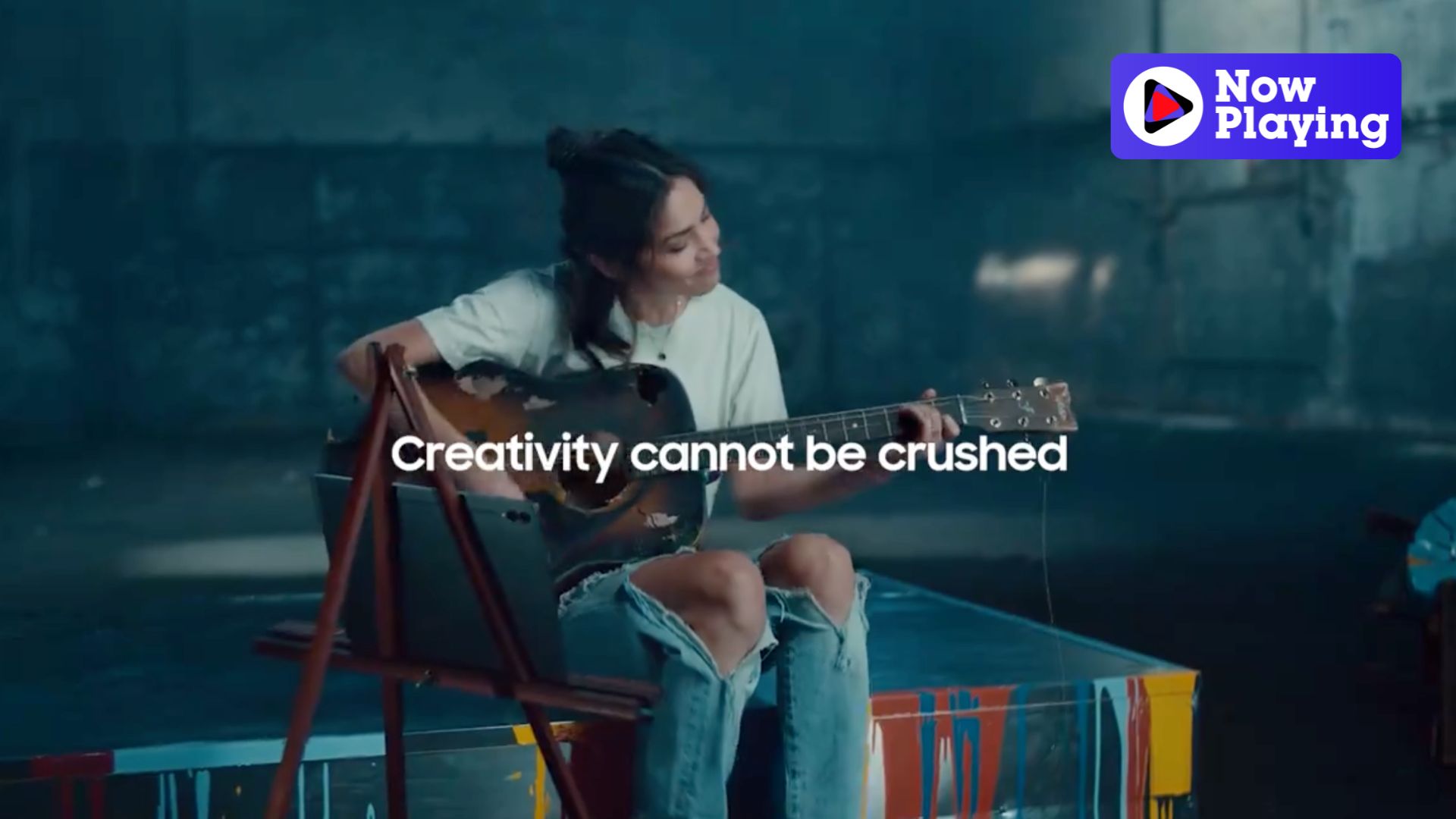
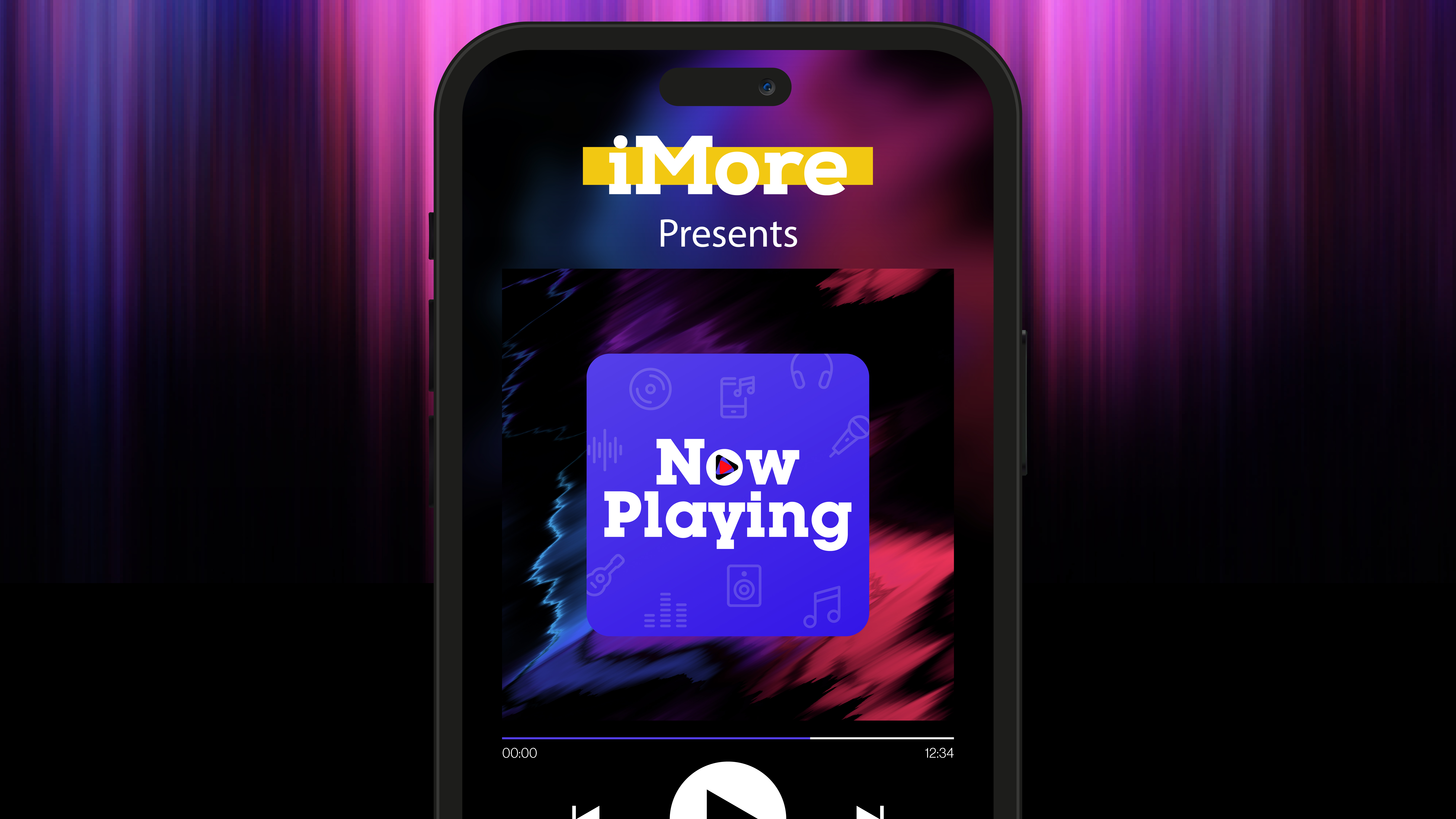
Now Playing is a weekly column from iMore's resident audiophile Tammy Rogers, looking into the state of the media streaming landscape. From headline-grabbing Apple Music exclusives to Oscar-baiting blockbuster Apple TV+ films, Apple is becoming a more recognized part of the media, arts and entertainment landscape. Now Playing will help you make sense of Apple's place in the industry.
Last week, I said (and I quote, directly from the last issue of ‘now playing’) that if I had to “think about the various missteps of the most popular streamer on earth” then I’d “book a plane to Sweden and mash some heads into desks myself.” Clear, concise, and words spoken with meaning, although here am I, once again, speaking of Spotify’s tireless quest to annoy almost everyone it comes in contact with.
Beyond irritating Apple with App Store link permissions and killing off its artist's commission dollar by painful dollar, Spotify now finds itself earning the ire of music publishers that reckon the firm has broken copyright laws.
It’s not the first time that the Green Circle has come under fire for copyright infringement, and neither is it likely to be the last — but it does add to Spotify’s mounting pile of criticism from the people who use its platform to get their music on the best iPhones of its userbase.
Spotify’s continued efforts to be anti-artist, continued
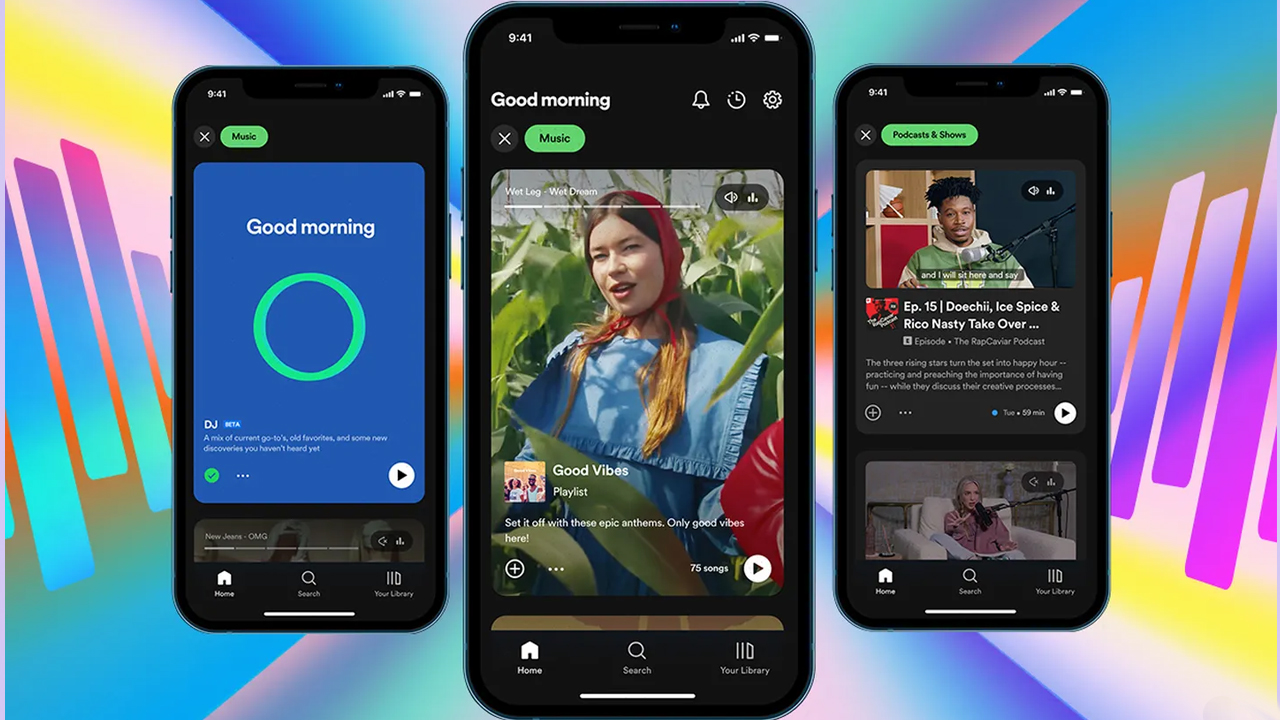
As with so much news around Spotify, the report initially comes from Billboard. It’s about a letter from the National Music Publishers Association, or NMPA, which sent a cease and desist letter to Spotify alleging that the streamer is “hosting lyrics, music videos and podcast content that contain their members’ copyrighted musical works without proper licenses.”
The full letter can be read in the Billboard report, and it's fairly clear in its contents. Spotify is apparently using content that it hasn’t got permission to share, or in this case, stream, and the publishers want it taken down. The letter “demands that unlicensed lyrics, music videos, and podcasts be removed from the platform or Spotify will face copyright liability for continued use of these works,” giving Spotify an ultimatum that it has to follow, lest, presumably, it faces consequences.
Those consequences aren’t fully detailed in the letter, although they’re not likely to be much fun if your name is one S. Potify Esq. The most interesting part of the letter, however, details some plans it looks like Spotify has to do with a certain ‘remix’ feature; something that could have whole new legal and copyright implications.
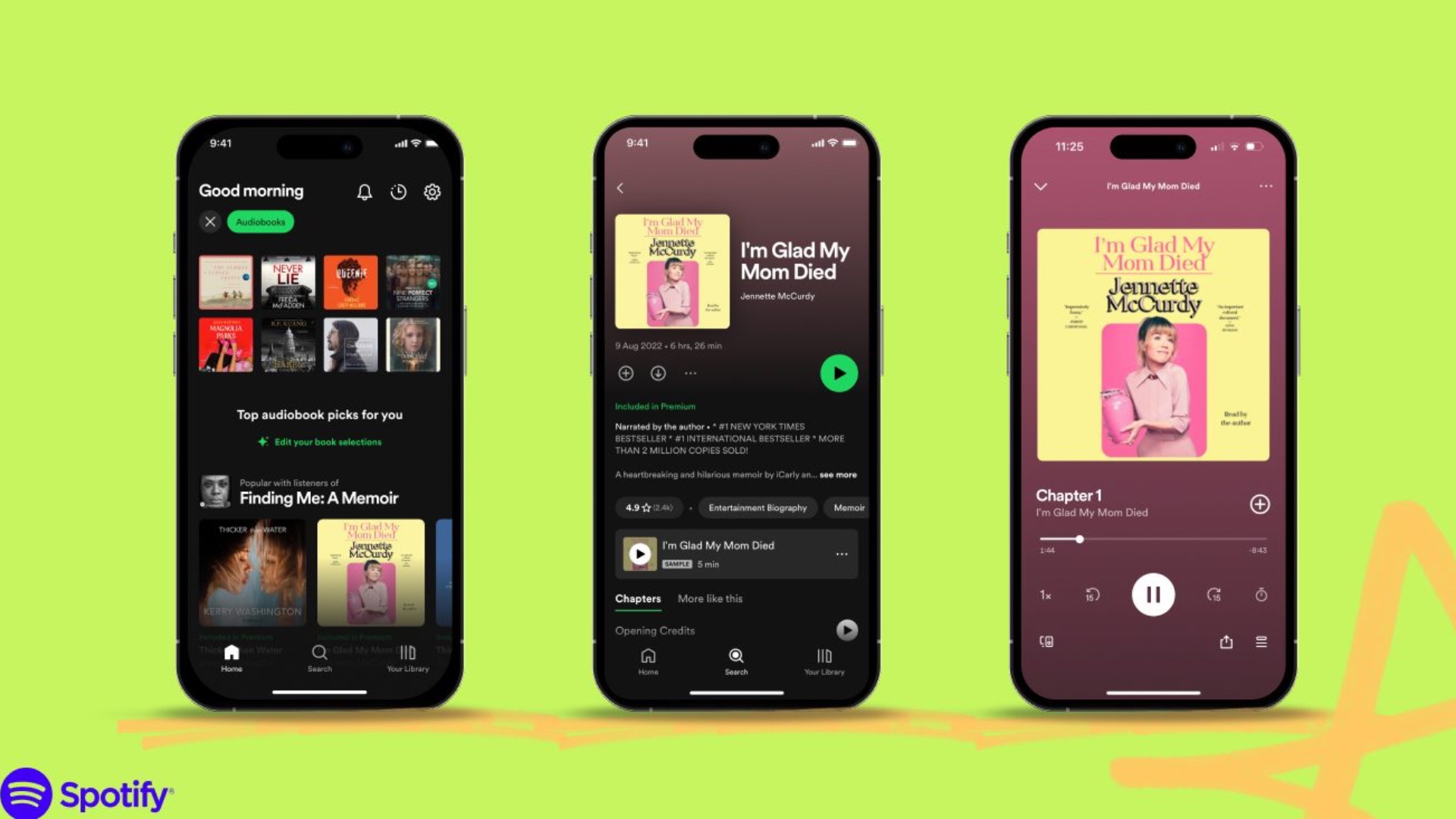
Curiously, we are told that “Spotify wishes to offer a “remix” feature allowing Spotify subscribers to “speed up, mash-up, and otherwise edit” their favorite songs.” That’s a feature that would require even more rigorous copyright following, as you would need express permission from the artists, labels, and publishers to muck about with how music sounds using copyrighted material, all while making money, one can only assume, hand over fist. The letter doesn’t seem too enthused by the idea, given that it calls such mash-ups, sped-up music, and otherwise edited tracks “derivative works”.
And it makes sense. We’re living in a tech landscape that sees creators and tech people constantly at odds with one another, as the former feels like they’re being pushed out of their own industry by profit-seeking techbros, and the latter seems to say ‘you just need to get with the future, man’ as it pumps prompts into a generative AI machine and gets a seven finger monstrosity out the other end. There is, at the moment, a melting pot of problems, and each small poke from the tech side seems to irk the creatives that little bit more.
Just as Apple’s ad managed to rile up creatives last week with its crushing of artistic implements, Spotify’s continued investment into AI technology and its inability to stick with copyright law is making creatives on its platform nervous. While there aren’t any signs as yet that they’ll start to jump ship, Spotify has to be very careful how it treats its content creators for without them, what do its users have to listen to?
You can’t fill a service with AI-generated music, after all.
Samsung’s backhand that backfired

No matter what you think about Apple’s ad, whether you believe it embodied everything wrong with tech at the moment or whether you only saw an innocent attempt to show how feature-filled the new iPad Pro is, no one can deny that it got people talking. Talking angrily, yes, but it opened a dialogue that remains ongoing today. What the conversation didn’t need, however, was Apple’s rival to march in, with its own response ad in hand.
The ad that Samsung plonked without warning on an unsuspecting Twitter saw the aftermath of Apple's crush ad — destroyed instruments and art supplies strewn about on the floor. A lone guitarist enters the room, sits down, and plays the remains of a broken guitar while reading music off their Samsung tablet thing.
And then, as the ad fades to black, Samsung plasters the words ‘with Galaxy AI’ across the screen.
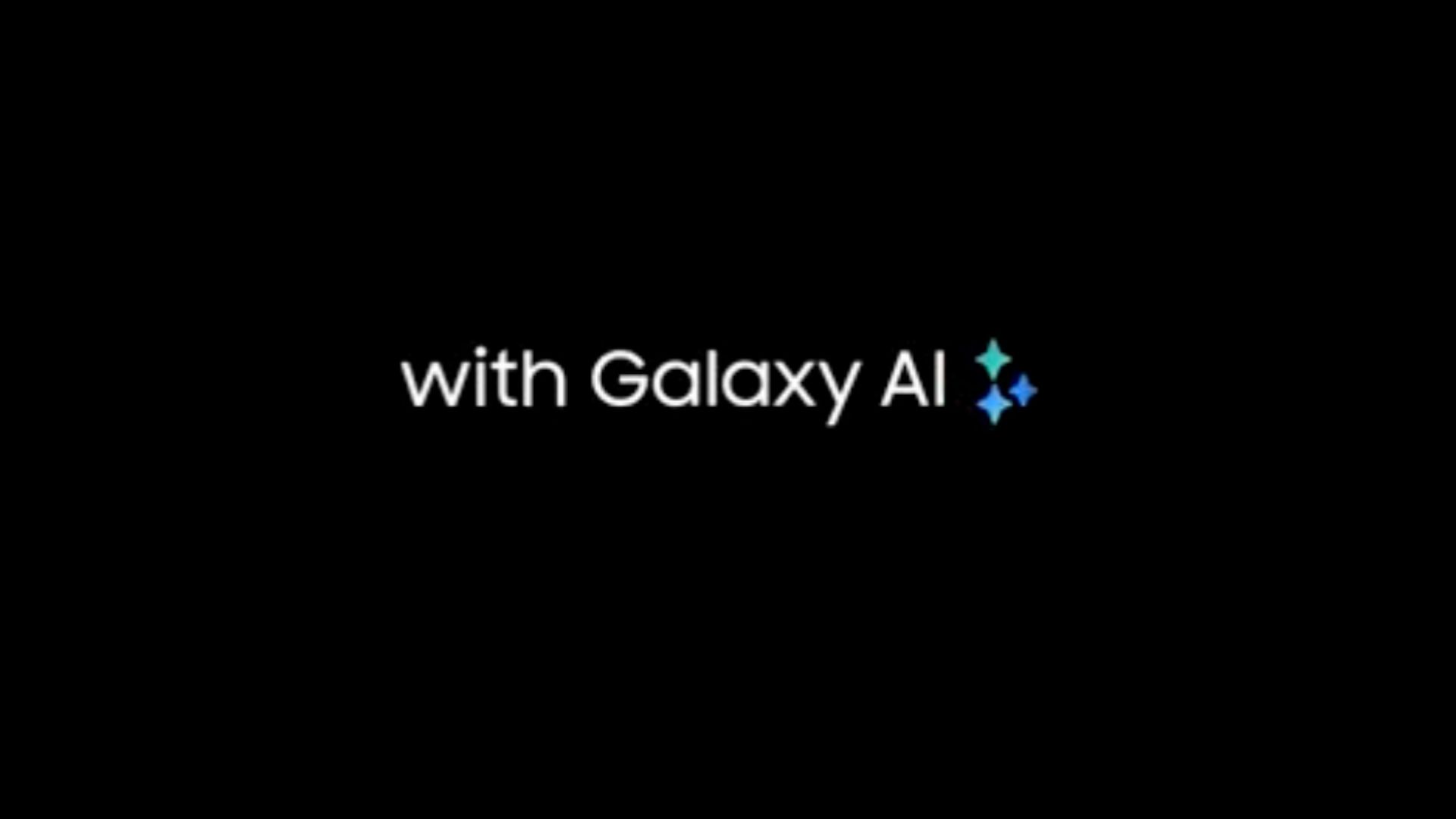
While Apple’s ad wasn’t subtle in its destruction, there has since been some understanding as to why it managed to rile up the kind of response that it did. Samsung has, with its response ad, managed to completely miss the mark. While many were concerned over the destruction of the physical objects, the real issues stemmed from those who viewed the ad as a symbol of technology and artificial intelligence literally ‘crushing’ creative work and endeavor.
Samsung, apparently only capable of surface-level critique, shows just how far it missed the point with those last words in its response. There is one interesting thing worth noting, however — there hasn’t been anywhere near as much backlash to Samsung’s ad as there was to Apple’s.
There are a number of reasons why this could be. The first is that Apple simply has a completely different customer base, one that is feeling the squeeze of their industry with the onset of AI and a failing economy. When Apple released the ‘Crush!’ ad, the people who saw it were the creatives who tend to buy Macs, MacBooks, and iPads for music creation, movie making, and art. Samsung on the other hand has a completely different set of people that buy its equipment, particularly its tablets: People who don’t like Apple but want a tablet, Android fans, and, like, your mum.
The audience that didn’t like the Apple ad doesn’t care about Samsung, or whether its ad encourages them to be creative on a Samsung Galaxy Tab 9.
The audience that didn’t like the Apple ad doesn’t care about Samsung, or whether its ad encourages them to be creative on a Samsung Galaxy Tab 9. They were never considering buying a Samsung device, they were going to buy an iPad for their creative work, and they were watching the ‘Let Loose’ event so that they could see whether they needed to upgrade their old model and buy the new Apple Pencil Pro. The only people who saw Samsung’s ad were internet drama lovers, Samsung fans, and tech journalists who quickly realized what Samsung’s ad actually was:
A cheap shot at Apple that misses the mark with shameful inaccuracy and a complete lack of creativity. Apple’s ad might have riled up creators all over the place, but at least it was original. Samsung’s ad is about as creatively bankrupt as they come, and then advertises its latest AI thing that could actually pose a threat to the people it's trying to entice.
Classy.
Apple is now the arbiter of the 100 best albums ever, apparently
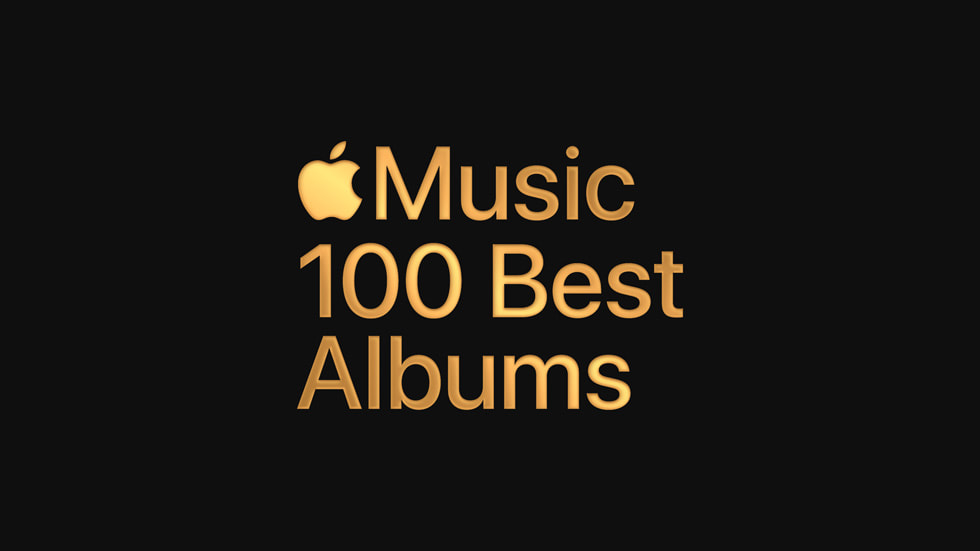
For seemingly no reason whatsoever beyond trying to bring more listeners to Apple Music, Apple has started a staggered release of the ‘best 100 albums ever released’ in a kind of streaming listicle. Since May 13, Apple has been highlighting ten albums a day in an effort to bring more awareness to some of the most popular recordings ever put to disc (or, in this case, to ones and zeroes that travel over WiFi).
Apple calls it an “editorial statement, fully independent of any streaming numbers on Apple Music — a love letter to the records that have shaped the world music lovers live and listen in.” But the question remains: Who’s editorial statement?
Apple says that the team deciding the list is made up of its own team, as well as a group of artists including "Maren Morris, Pharrell Williams, J Balvin, Charli XCX, Mark Hoppus, Honey Dijon, and Nia Archives." It's designed to show off Apple's commitment to human-curated music, something it remains very proud of in the face of other platforms AI created play queues.
The program comes with a dedicated microsite, as well as a short explanation of what kind of effect each album has had on the music industry as a whole, and why it’s made its way onto the list. It’s a massively impressive undertaking that has evidently taken a whole load of time and investment. For the music fan, it’s a lot of fun as well, as you watch each week to see what album is going to come next.
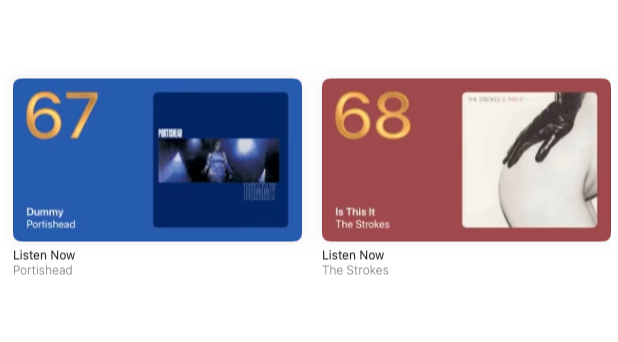
But again, the parameters of what makes an album ‘100 best’ material are lucid at best, and the decision process remains a mystery. We’d love to find out how Apple is deciding what albums end up on the list, but alas, in the dark we shall remain. A shame, to be sure, but there is still something exciting about checking the most recent top ten to see what comes next, and it’s doing a pretty solid job of making me check Apple Music every morning.
It’s apparently all going to end, with the final 10, on a “special roundtable discussion broadcasting globally on Apple Music” — so there’s something to look forward to at the end of it all as well. You can find the 100 Best Albums on Apple Music now — we're up to 61!
Accessibility and Apple Music
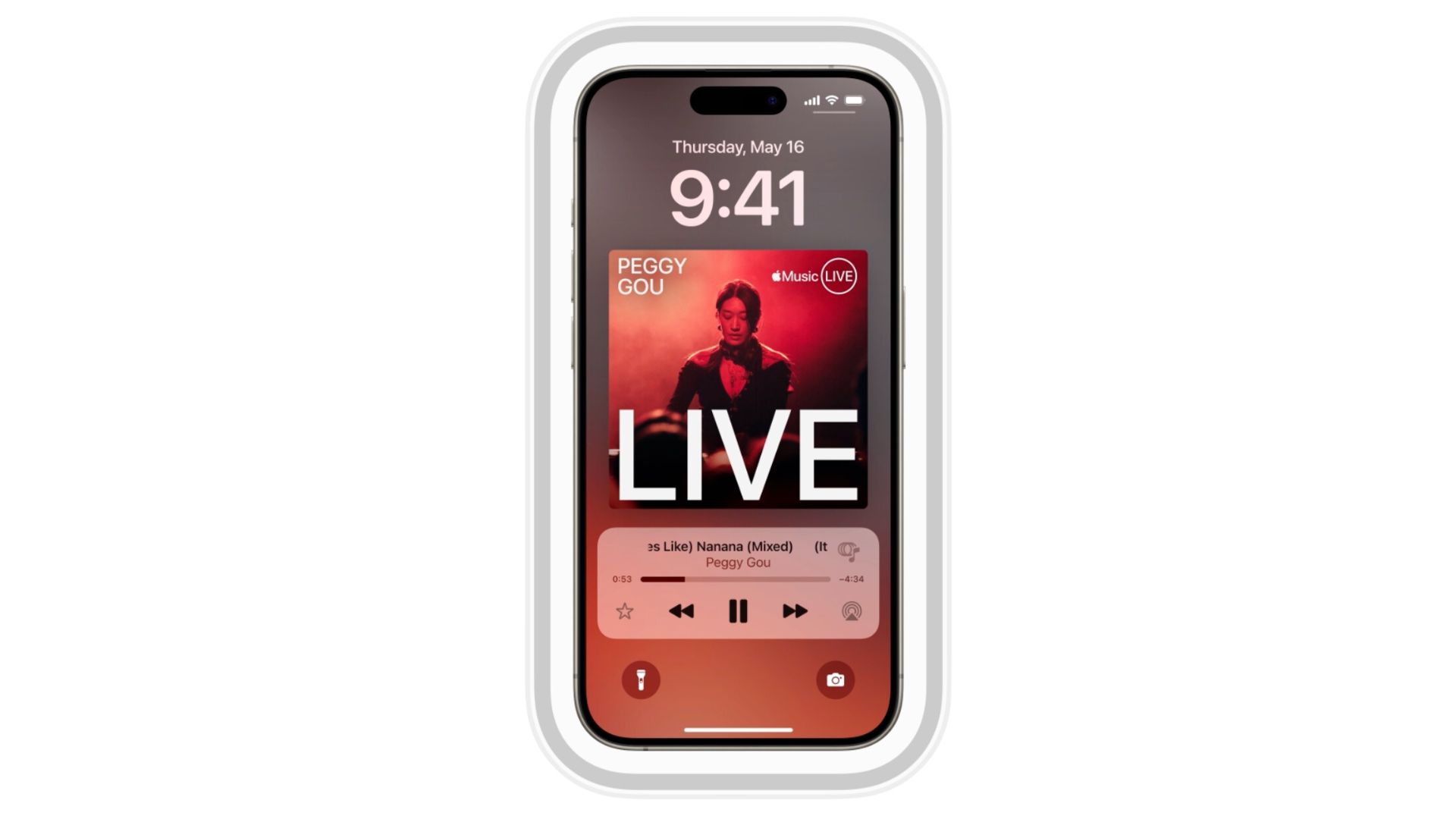
Amongst other accessibility announcements in its latest news release, Apple has added a cool feature to Apple Music for people who are losing or who have already lost their hearing. Using the haptic motors in your iPhone, you’ll be able to feel different sensations from your phone so that you can still enjoy music whether you can hear it or not. Apple says:
“With this accessibility feature turned on, the Taptic Engine in iPhone plays taps, textures, and refined vibrations to the audio of the music. Music Haptics works across millions of songs in the Apple Music catalog, and will be available as an API for developers to make music more accessible in their apps.”
Apple has always been pretty good with its accessibility features across its devices, and this new one is huge for the music industry. Those who are deaf or hard of hearing haven’t had much in the way of music interaction before, so this new feature is going to give music back to a lot of people. We love some good news, and this is most definitely good news. The best bit? Developers are going to be able to use the API to bring it to more applications, so it might move across to other streaming platforms.
Spotify and its issues, Samsung’s bad ad, and Apple’s having fun
It feels like every week something freshly abominable comes out of the Spotify newsroom, whether that’s the iffy treatment of artists on its platform, copyright concerns, or the continued batting of string in Apple’s direction. This time it’s the old copyright concerns, and it mounts on top of what must now be ever more frustrated artists and their teams as they try to get their dues from a company that thinks it’s too big to fail.
And we all know how that usually ends.
Samsung shows a complete lack of understanding of the issues surrounding its ad, only highlighting the problem with the land of tech and its every further encroachment on the creative space. No, Samsung, the issue wasn’t the broken guitar, it was what the broken guitar represented, and your blatant ad for AI isn’t going to make the people angry at Apple’s ad ingratiated to you.
Apple, however, manages to bring some positivity, albeit with some small points. The 100 Best Albums Ever list might have murky editorial origins, but it’s fun to see what new album comes next. The addition of haptics to Apple Music on iPhone is fun as well, bringing new experiences to those who are otherwise unable to hear the music.
What to watch

Monarch: Legacy of Monsters

Godzilla and friends have arrived on the small screen, bringing spectacle, action, and mystery in spades. Following the latest monster movies featuring the giant scaly nuclear lizard (or mutated iguana, it turns out), Monarch: Legacy of Monsters is a slightly silly, extremely fun romp through the world of massive monster fights that level cities.
Starring Kurt Russel and Anna Sawai (we talked about her last week in Shogun), Monarch is everything you could want from a show that features towering lumps of monster. Characters are entertaining if a little hollow, but the real fun comes in trying to understand the world that they inhabit. What are these monsters? Where do they come from? And what is Monarch, the organization that tries to make sense of it all?
You can stream the whole show now on Apple TV Plus — although you’ve had a good six months to get started.
Fraggle Rock: Back to the Rock
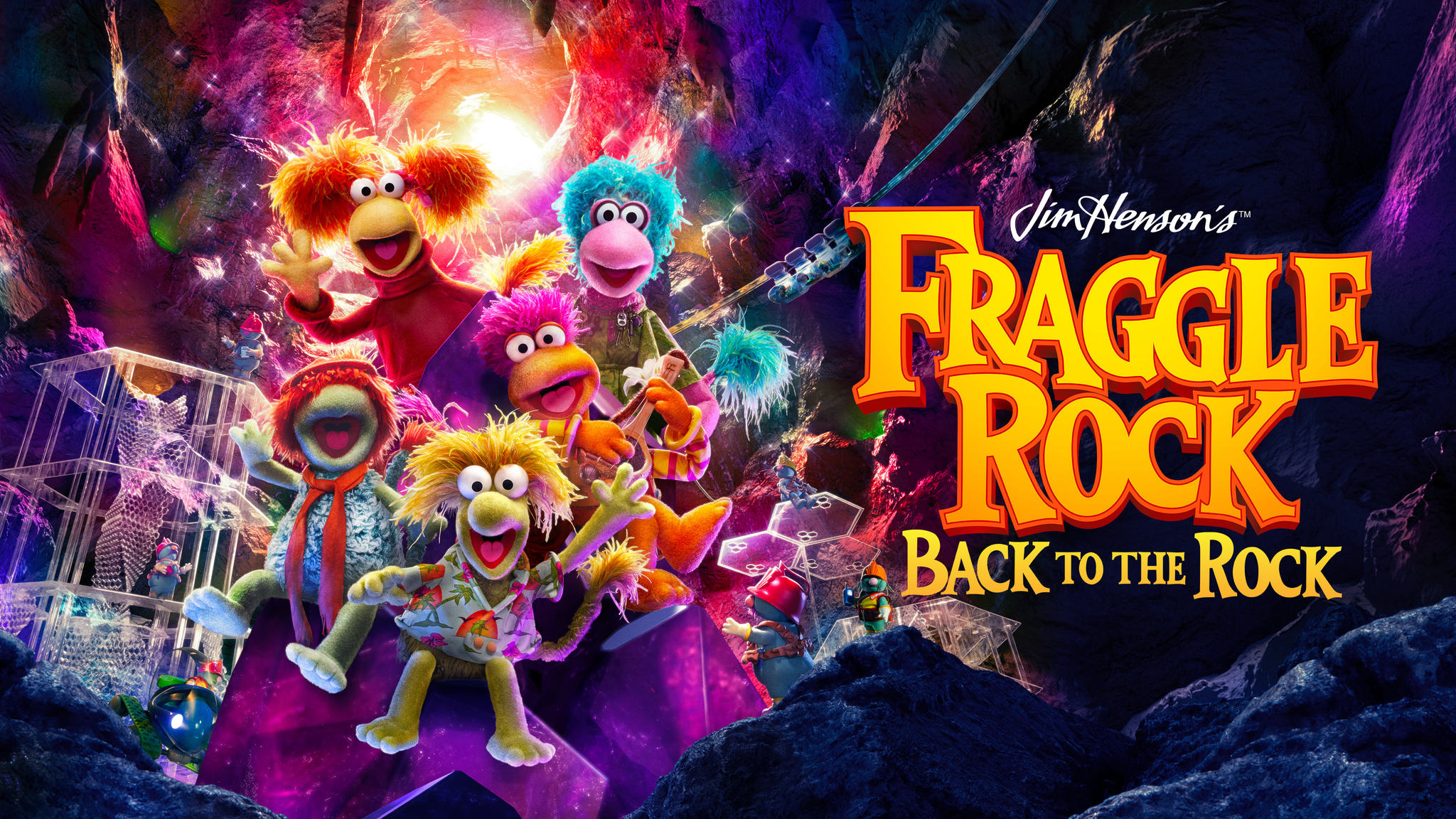
If you grew up in the eighties (or you were raised on the various works of Jim Henson), then you’ll already know the Fraggles and their underground homes. The hilarious, heartwarming, and emotionally educational show is back for the space year 2024, with a fresh new season on Apple TV+ — and it has all the heart of that which came before it.
The puppets are stunning, the show itself colorful, and the stories just as affecting as they were when you were seven. It’s perfect, of course, for the young ones in your life, but don’t let that stop you from sitting down and watching it with them. It’s still wonderful.
You can stream seasons 1 and 2 of Fraggle Rock: Back to the Rock on Apple TV Plus now.
What to listen to

HIT ME HARD AND SOFT — Billie Eilish
She’s back with more block capitals and some more creative pop music. This is the first album Billie has released since coming out, and there’s a palpable sense of queer joy on the record which blends elements of everything from trance to jazz. It’s a sign of a young artist maturing with each new release, and will easily fill a 45-minute listening session.
Can We Please Have Fun — Kings of Leon
The boys behind ‘Sex is on Fire’ are back with a new album that is, as you might expect, more of the same. It’s indy rock at its most indy rock, and if you’re into that, then you’ve probably already given this new album a good whirl already.
Dark Superstition — Gatecreeper
Black Metal tank fanatics Gatecreeper return for more bloodshed with their sixth studio outing, and it’s every bit as pummeling as you might hope. Mighty riffs, crushing grooves, and visceral vocals mix for an intoxicating musical cocktail. Not one for the faint of heart, but if there’s even a little bit of you that’s interested in heavy music then it needs to go on the playing next queue right now.







